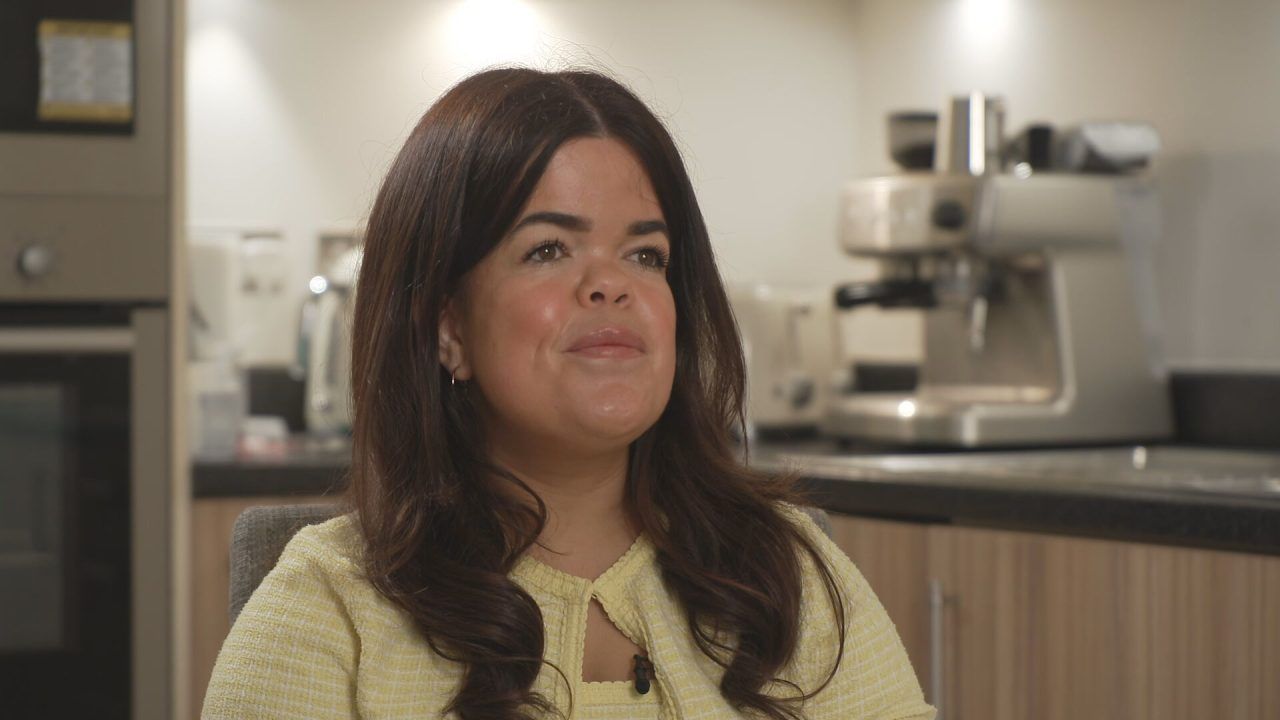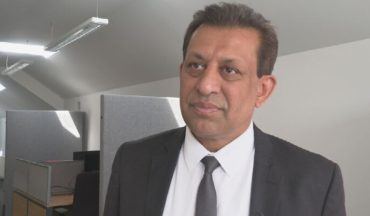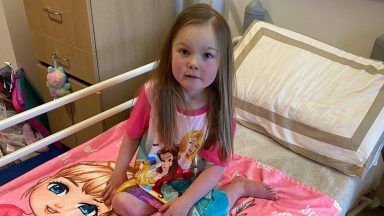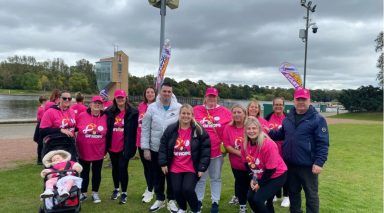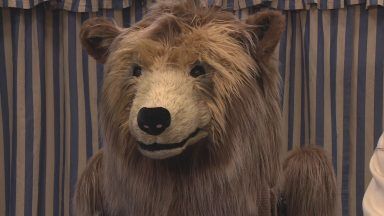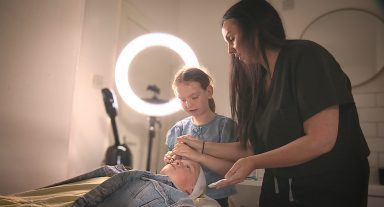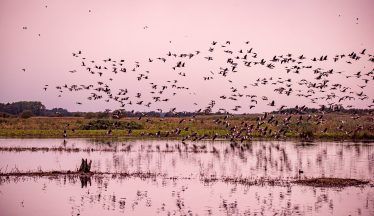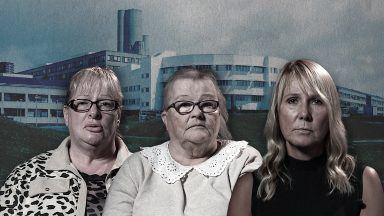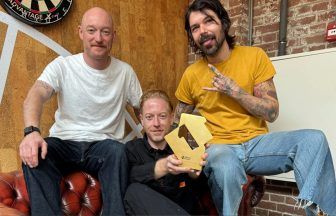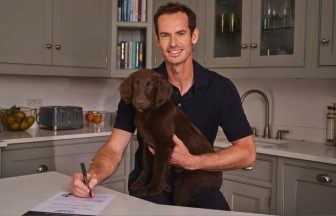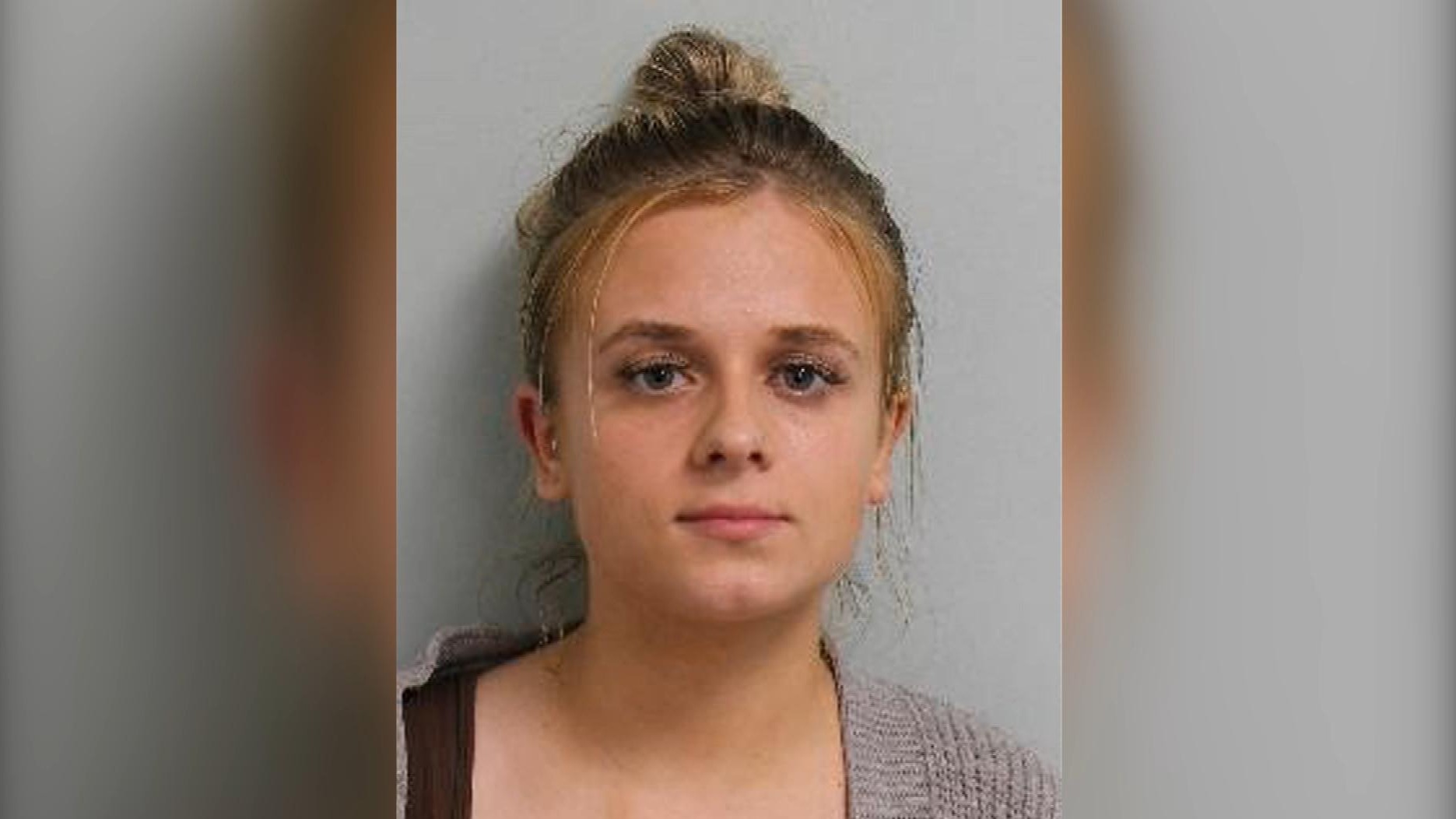Most people will know her as one of the first winners of The Traitors – and now, Meryl Williams has carved out a career for herself as a social media influencer and disability campaigner.
But the 28-year-old from Edinburgh says she still faces discrimination every day and believes there’s a long way to go in tackling prejudice against dwarfism.
Meryl was born in South Africa in 1996.
Her parents soon realised she hadn’t developed as expected – but it took three months for her to finally be diagnosed with dwarfism.
She told Scotland Tonight: “I think because my dad’s 6ft2, my mum’s 5ft5. There’s no one ever in my family that had ever been little. So I think with them, it was about teaching themselves as well. They’ve never met someone with dwarfism.
“I think my mum contacted some people in South Africa that she knew who knew someone with dwarfism to find out ‘what can I do to help Meryl, especially for the younger years?’”
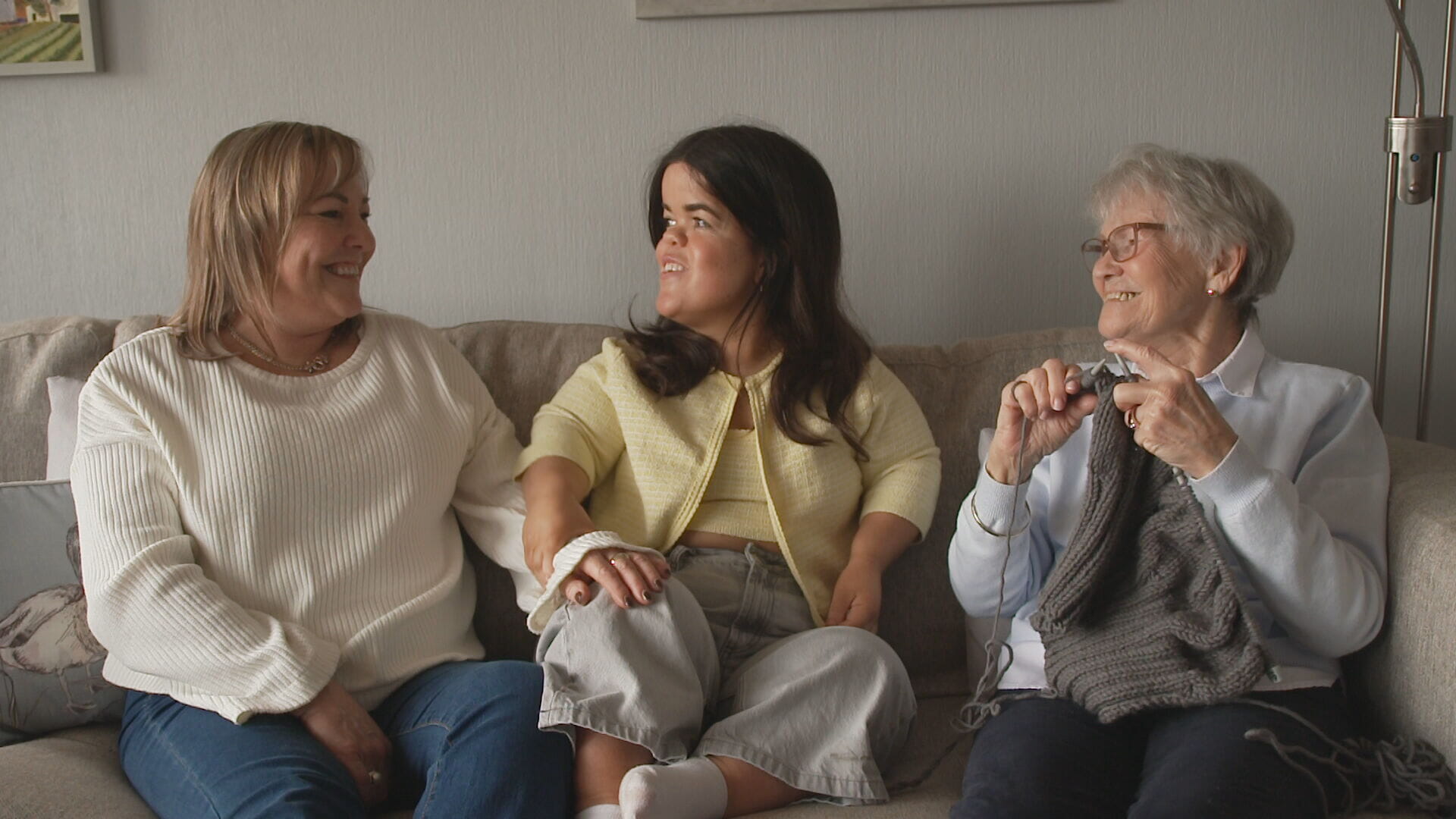 STV News
STV NewsMeryl moved to the UK with her mum when she was three.
She was always determined to prove she was as capable as everyone else.
“I think I started to realise I was different at school early on,” she said. “I remember when I was sitting down with everyone when I was five.
I was like, ‘Okay, so when I sit down, I’m the same height as everyone, but when I stand up, I’m not the same.’
“I’m always thinking, ‘If I can’t do something the same way as everyone else, then I’ll figure out another way’. There’s no such thing as ‘no’ for me. I’ll always figure it out.
“Maybe I might have to take an extra five minutes on the race. Or maybe I might be a little bit slower – but I’ll still compete.”
When Meryl was approached by a casting agent for the first series of The Traitors, she saw it as a good opportunity to educate people about her condition.
She took part in all the challenges – and went on to win the series.
“I wanted to have a level playing field, like when we do our missions and all those adventures. I want to start at the same time as everyone else. And I want to finish at the same time as everyone else.
“I want to just do the same and just be playing the same race.
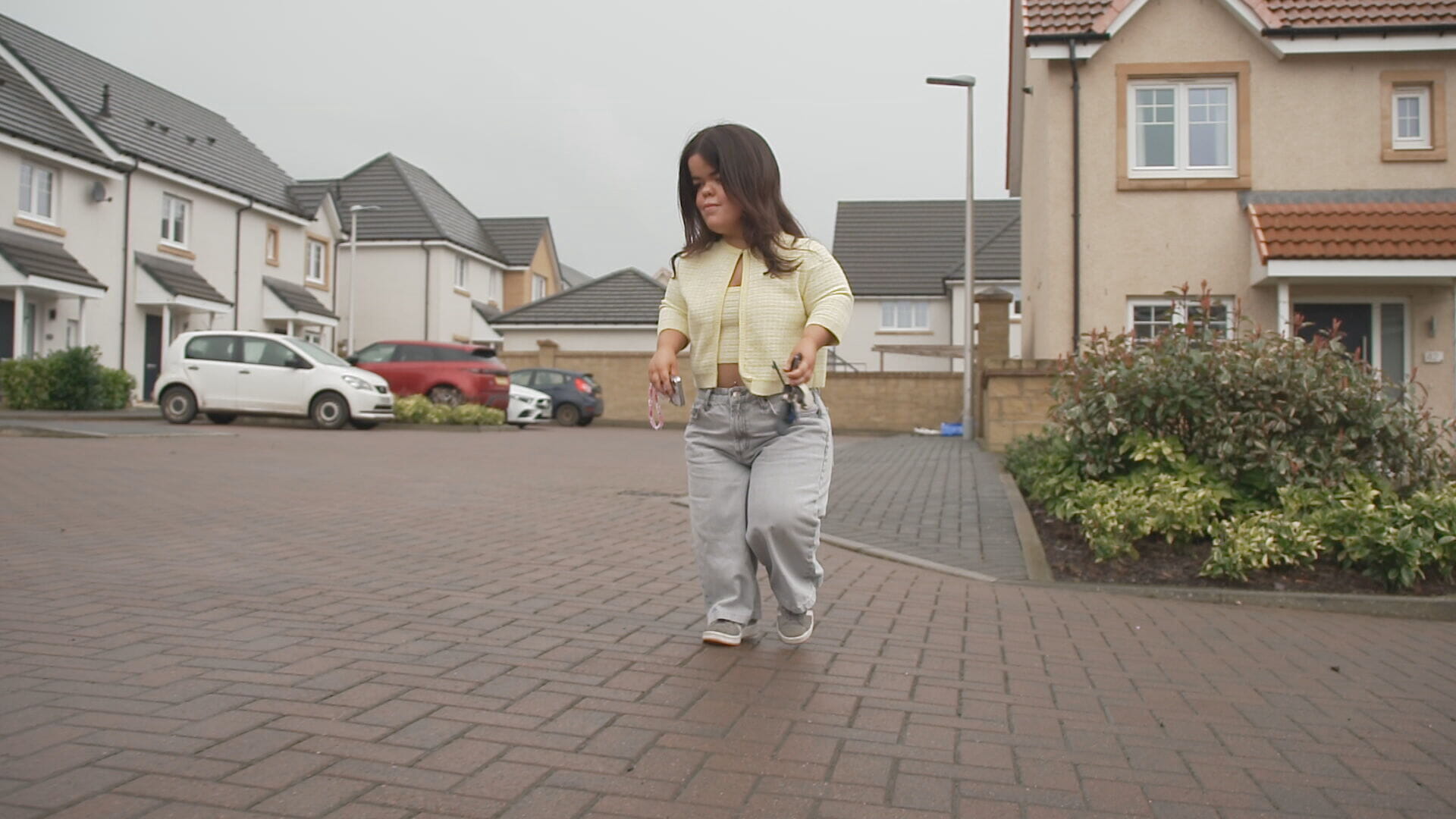 STV News
STV News“That was the whole reason why I went on the show; just to educate, as well as show people that I’m the same.”
Since then, Meryl has built up a huge following on social media – and often posts videos documenting how she navigates being little.
“Growing up on TikTok has been amazing because I think it’s just helped people relate to me, and also, a lot of people can go their whole life without ever seeing anyone that’s got my condition.
“So, at least they can watch someone with my condition and hopefully see past that and just get to know the actual person.
“I’m a lot more relatable to them than they think I am.”
Meryl said her mum and grandmother are her “best friends” – they call themselves ‘The Three Musketeers.’
“I owe my whole life to them. I’m an only child, and my dad and all my family still live in South Africa, so we’ve got that really close connection.
“They’ve been here from the start regardless of, like, who comes in and out of my life. They’re always there.”
But despite her own determination and the support of her family, Meryl found it hard to change other people’s perceptions and prejudices.
She said she experiences “a lot of discrimination.”
“Last week, I was in the shopping mall, and my friend went to the toilet, and I said, ‘I’ll wait for you outside,’ she recalled.
“There were these two teenage boys on the escalator, and they were like this,” Meryl said, with a shrinking gesture with her thumb and forefinger. “That was within the space of five minutes.
“I have people laughing. I’ve had people calling me ‘midget’, I’ve had people saying, ‘Why are you so small?’”
“So that happens all the time.”
Meryl also said she feels dwarfism is often excluded from the inclusivity movement.
“I feel like everyone’s really gone for accessibility and inclusion, but I feel like my condition has been left out. Like, ‘Oh, but they’re just little.’ But then, it has a comical aspect.
“I remember I saw a video on social media and it was ‘like my mom’s scared of midgets’ and I was like, ‘oh, my goodness, I didn’t realise it was a fear’. I remember reading like 100,000 comments and it was a lot of people saying ‘God I’m scared of them too.’ ‘I’m terrified.’ And I thought, ‘Wait, there are actual people that are scared of my condition’.
“I do experience a lot of discrimination, especially when I go out in public. It’s hard in a sense because I’m often like, ‘maybe they’ve watched The Traitors and they’ve recognised me from that.’
“But other times, I see people, and they just see me as my condition without getting to know me and then point and laugh. Or I clock when people look at each other and look at me. It’s quite tough.”
Earlier this year, things came to a head when Meryl was targeted by teenagers on a train, which forced her to hide in the toilets.
She shared a video of the incident on Tiktok.
“I feel like I’m an easy target, and especially when you are little, you do. I get quite intimidated quite quickly.
“You feel like you’re stuck, and you don’t know how to get out of a situation. That’s why I took myself to the toilets.”
She added: “I never wanted to look like I was attention seeking. I’m never looking for sympathy because no sympathy can take away my condition. I didn’t want to do that. I just thought maybe it could show other people that this is actually what I deal with.
“It’s taken a lot of things to happen for me to build up this thick skin. I think the first couple of times, it really hurt me, and it made me upset – and then it’s just learning how to cope with those situations.
“I think it’s just because it’s something I have no control over, so just learning to just deal with things.”
Learning to fit into a world that wasn’t built for her has become second nature to Meryl — even in her own home.
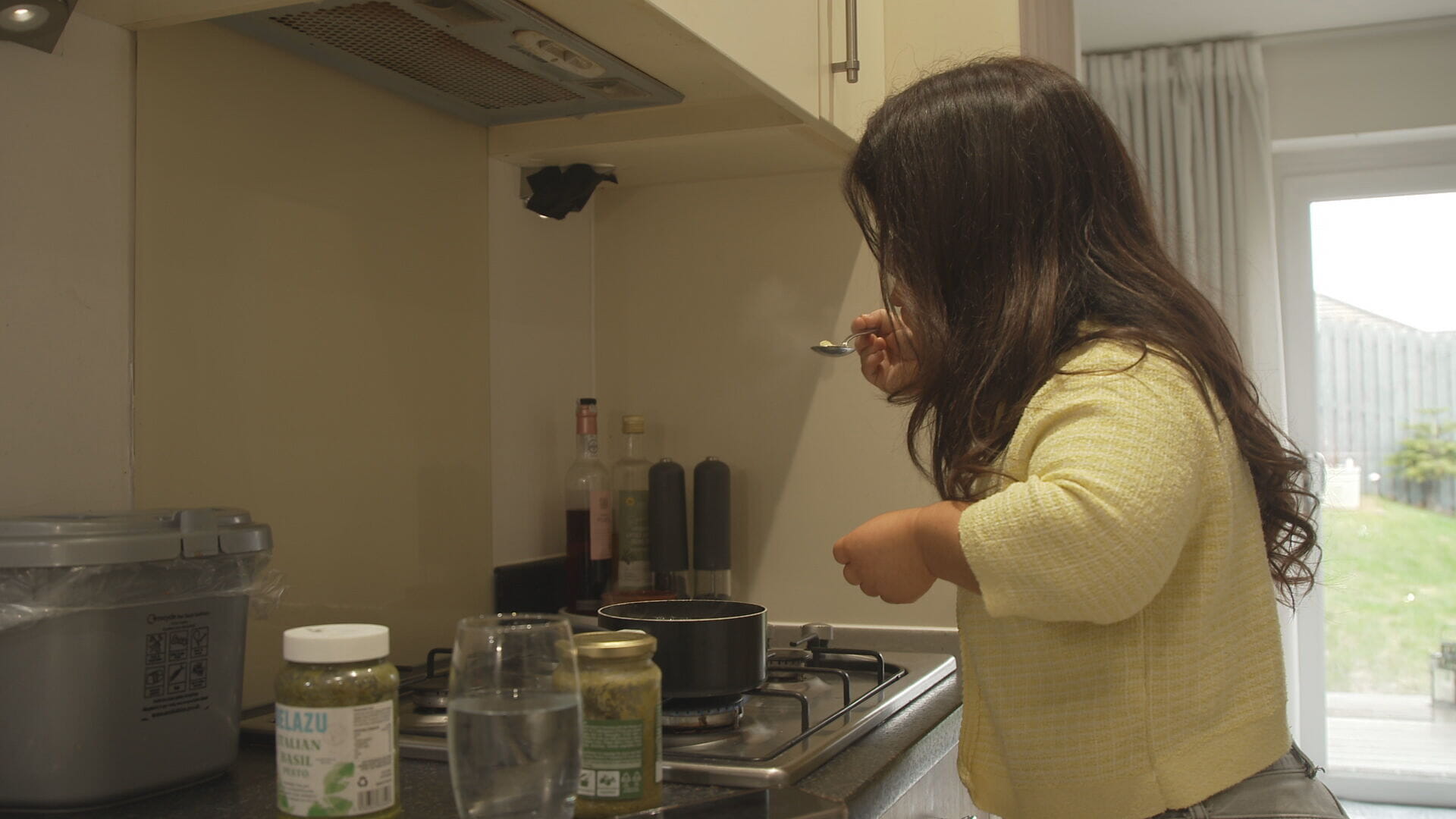 STV News
STV News“What’s the point of adapting one house for me? Although it would make my life so much easier, I’d then go outside in the world, and it’s going to be adapted. I need to learn how to adapt myself all the time.
“When I was putting a bathroom mirror up last week, I put the bathroom mirror up where an average-sized person can see it. I couldn’t see it, because it would make logical sense.
“When everyone else comes to my house, they would be able to see themselves, or when I sell my house later in life or later down the line… I think I am just always adapting.
“If you ask me to get something from the high shelf, I’ll figure out five ways I can get it.”
Meryl’s resilience has connected with hundreds of thousands of followers on her social media pages and podcast.
And she’s determined to show her differences will always be her strength.
“It’s amazing. I think it’s good having this condition because it makes me stand out,” she said.
“I can use it to my advantage in the sense of advocacy, showing people we’re the same and representing a community that’s not often represented.”
Watch the full interview Scotland Tonight: Meryl Williams & Dwarfism on Thursday, April 10 at 8.30pm on STV and STV Player.
Follow STV News on WhatsApp
Scan the QR code on your mobile device for all the latest news from around the country


